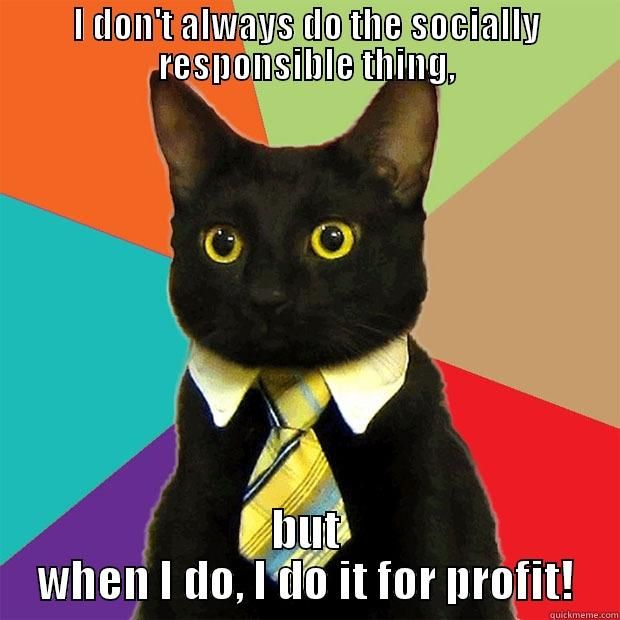
When Corporate Social Responsibility (CRS) Backfires
A recent scientific paper, titled “When Corporate Social Responsibility Backfires: Theory and Evidence from a Natural Field Experiment” by John A. List and Fatemeh Momeni explores how corporate social responsibility can sometimes have negative consequences. The paper looks at how a company’s social responsibility practices can affect both consumers and employees, and how these effects can lead to unexpected outcomes.
Moral Licensing of Firms is Real
The paper’s findings have implications for businesses and society. First, the findings suggest that businesses should be aware of how their social responsibility practices can unintentionally create negative consequences. Second, the findings also imply that society should be wary of giving too much trust to businesses when it comes to social responsibility. This is because businesses may not always act in the best interests of society, and may instead pursue their own self-interests. Finally, the findings suggest that businesses and society need to work together to ensure that social responsibility practices are effective and beneficial for all parties involved.
How CSR can backfire if it’s not done thoughtfully
There are a few ways that CSR can backfire if it’s not done in a thoughtful way. First, CSR can create negative consequences for consumers if businesses are not transparent about their practices. For example, if a business claims to be environmentally friendly but is actually using harmful chemicals in their production process, this lack of transparency can lead to consumer mistrust. Second, CSR can also backfire on employees if it’s not done in a way that benefits them. For example, if a company implements a sustainability policy that requires employees to work longer hours without additional compensation, this could lead to resentment and turnover. Finally, CSR can also backfire on society if businesses use it as a way to pursue their own self-interests.
Importance of CSR for businesses and society
CSR is important for businesses and society for a few reasons. First, CSR can help businesses build trust with consumers. When consumers see that a business is engaging in socially responsible practices, they are more likely to trust the company and continue doing business with them. Second, CSR can also help businesses attract and retain employees. Employees want to work for companies that are socially responsible and have a positive impact on the world. Finally, CSR is also important for society because it can help create a more sustainable and just world. When businesses engage in socially responsible practices, they are helping to create a better future for all of us.
Summary of the key takeaways from the scientific paper
The key takeaways from the scientific paper are that businesses should be aware of how their social responsibility practices can unintentionally create negative consequences, and that society should be wary of giving too much trust to businesses when it comes to social responsibility. The paper also suggests that businesses and society need to work together to ensure that social responsibility practices are effective and beneficial for all parties involved.
Limitations of the study and future research directions
The study has a few limitations. First, the study only looked at the short-term effects of social responsibility. Future research could examine how social responsibility affects businesses and society in the long term. Second, the study only looked at a few specific examples of how social responsibility can backfire. Future research could explore other ways in which social responsibility can unintentionally create negative consequences. Finally, the study was conducted using data from the United States. Future research could examine how social responsibility affects businesses and society in other countries.
Despite its limitations, the study provides important insights into how social responsibility can backfire if it’s not done thoughtfully. The findings suggest that businesses should be aware of how their social responsibility practices can unintentionally create negative consequences, and that society should be wary of giving too much trust to businesses when it comes to social responsibility. The paper also suggests that businesses and society need to work together to ensure that social responsibility practices are effective and beneficial for all parties involved.
References
John List & Fatemeh Momeni, 2017. “When Corporate Social Responsibility Backfires: Theory and Evidence from a Natural Field Experiment,” Natural Field Experiments 00618, The Field Experiments Website. https://ideas.repec.org/p/feb/natura/00618.html

